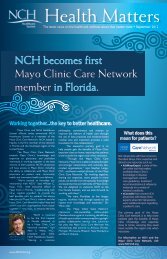SODEXO EMPLOYMENT APPLICATION APPLICATION FOR ...
SODEXO EMPLOYMENT APPLICATION APPLICATION FOR ...
SODEXO EMPLOYMENT APPLICATION APPLICATION FOR ...
You also want an ePaper? Increase the reach of your titles
YUMPU automatically turns print PDFs into web optimized ePapers that Google loves.
Para informacion en espanol, visite www.consumerfinance.gov/learnmore o escribe a la Consumer Financial ProtectionBureau, 1700 G Street N.W., Washington, D.C. 20552.A Summary of Your Rights Under the Fair Credit Reporting ActThe federal Fair Credit Reporting Act (FCRA) promotes the accuracy, fairness, and privacy of information in the files ofconsumer reporting agencies. There are many types of consumer reporting agencies, including credit bureaus and specialtyagencies (such as agencies that sell information about check writing histories, medical records, and rental history records).Here is a summary of your major rights under the FCRA. For more information, including information about additionalrights, go to www.consumerfinance.gov/learnmore or write to: Consumer Financial Protection Bureau, 1700 GStreet, N.W. Washington, DC 20552.You must be told if information in your file has been used against you. Anyone who uses a credit report or anothertype of consumer report to deny your application for credit, insurance, or employment – or to take another adverseaction against you – must tell you, and must give you the name, address, and phone number of the agency thatprovided the information.You have the right to know what is in your file. You may request and obtain all the information about you in the filesof a consumer reporting agency (your “file disclosure”). You will be required to provide proper identification, which mayinclude your Social Security number. In many cases, the disclosure will be free. You are entitled to a free file disclosureif:o a person has taken adverse action against you because of information in your credit report;o you are the victim of identity theft and place a fraud alert in your file;o your file contains inaccurate information as a result of fraud;o you are on public assistance;o you are unemployed but expect to apply for employment within 60 days.In addition, all consumers are entitled to one free disclosure every 12 months upon request from each nationwide creditbureau and from nationwide specialty consumer reporting agencies. See www.consumerfinance.gov/learnmore foradditional information.You have the right to ask for a credit score. Credit scores are numerical summaries of your credit-worthiness basedon information from credit bureaus. You may request a credit score from consumer reporting agencies that createscores or distribute scores used in residential real property loans, but you will have to pay for it. In some mortgagetransactions, you will receive credit score information for free from the mortgage lender.You have the right to dispute incomplete or inaccurate information. If you identify information in your file that isincomplete or inaccurate, and report it to the consumer reporting agency, the agency must investigate unless yourdispute is frivolous. See www.consumerfinance.gov/learnmore for an explanation of dispute procedures.Consumer reporting agencies must correct or delete inaccurate, incomplete, or unverifiable information.Inaccurate, incomplete or unverifiable information must be removed or corrected, usually within 30 days. However, aconsumer reporting agency may continue to report information it has verified as accurate.Consumer reporting agencies may not report outdated negative information. In most cases, a consumer reportingagency may not report negative information that is more than seven years old, or bankruptcies that are more than 10years old.Access to your file is limited. A consumer reporting agency may provide information about you only to people with avalid need -- usually to consider an application with a creditor, insurer, employer, landlord, or other business. The FCRAspecifies those with a valid need for access.You must give your consent for reports to be provided to employers. A consumer reporting agency may not giveout information about you to your employer, or a potential employer, without your written consent given to the employer.Written consent generally is not required in the trucking industry. For more information, go towww.consumerfinance.gov/learnmore.You may limit “prescreened” offers of credit and insurance you get based on information in your credit report.Unsolicited “prescreened” offers for credit and insurance must include a toll-free phone number you can call if youchoose to remove your name and address from the lists these offers are based on. You may opt-out with thenationwide credit bureaus at 1-888-5-OPTOUT (888 567 8688).You may seek damages from violators. If a consumer reporting agency, or, in some cases, a user of consumerreports or a furnisher of information to a consumer reporting agency violates the FCRA, you may be able to sue in stateor federal court.Identity theft victims and active duty military personnel have additional rights. For more information, visitwww.consumerfinance.gov/learnmore.States may enforce the FCRA, and many states have their own consumer reporting laws. In some cases, you mayhave more rights under state law. For more information, contact your state or local consumer protection agency oryour state Attorney General. For information about your federal rights, contact:9 Revised 1/1/13
















